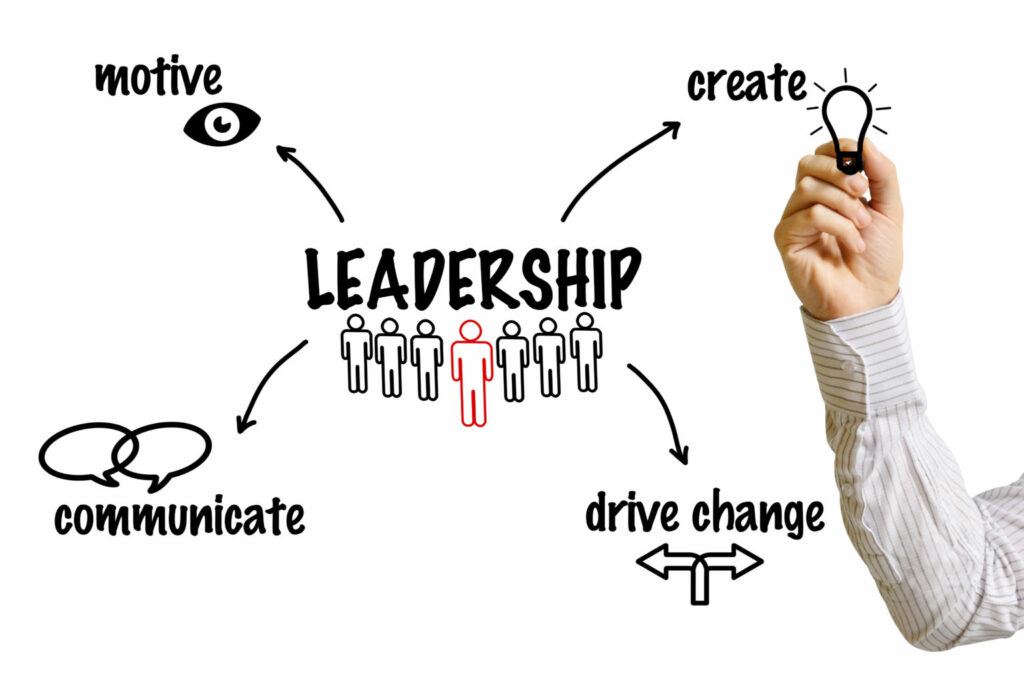Leadership effectiveness is the ability of a leader to influence and motivate others to achieve a common goal. Effective leaders can create a positive work environment, foster collaboration and innovation, and inspire trust and loyalty among their followers. Leadership effectiveness is not only important for the success of the organization, but also for the personal and professional growth of the leader and the team members.

The key elements of effective leadership
There are many factors that contribute to leadership effectiveness, such as the leader’s personality, skills, behaviors, and situational factors. However, some of the key elements of effective leadership are:
- Vision: A clear and compelling vision of the future that guides the direction and actions of the organization. A vision helps to align the team members with the leader’s goals and values, and provides a sense of purpose and meaning.
- Communication: The ability to communicate the vision, expectations, feedback, and recognition in a clear, concise, and respectful manner. Communication also involves active listening, nonverbal cues, and emotional intelligence. Effective communication builds trust, understanding, and engagement among the team members.
- Adaptability: The ability to adjust to changing circumstances and respond to new challenges and opportunities. Adaptability also involves learning from mistakes, seeking feedback, and embracing diversity and innovation. Effective leaders are flexible and resilient in the face of uncertainty and complexity.
- Coaching: The ability to develop the potential and performance of the team members by providing guidance, support, feedback, and opportunities for learning and growth. Coaching also involves delegating tasks, empowering decision-making, and recognizing achievements. Effective leaders are mentors who foster a culture of continuous improvement and development.
- Influence: The ability to persuade and inspire others to follow the leader’s vision and direction. Influence also involves building relationships, networking, negotiating, and resolving conflicts. Effective leaders are role models who demonstrate integrity, credibility, and charisma.
How to measure leadership effectiveness
To measure leadership effectiveness, there are various methods and tools that can be used, such as:
- Self-assessment: The leader’s own evaluation of their strengths and weaknesses, based on their goals, values, and feedback. Self-assessment helps to identify areas for improvement and development.
- Feedback: The opinions and perceptions of others who interact with the leader, such as team members, peers, managers, customers, or stakeholders. Feedback can be collected through surveys, interviews, or observations. Feedback helps to validate or challenge the leader’s self-assessment and provide insights into their impact on others.
- Results: The outcomes and achievements of the leader’s actions and decisions, such as performance indicators, customer satisfaction, employee engagement, or organizational health. Results can be measured by quantitative or qualitative data. Results help to evaluate the effectiveness of the leader’s strategies and tactics.
Examples of effective leaders
Leadership effectiveness is not a fixed or static trait that one either has or does not have. It is a dynamic and evolving skill that can be learned and improved through practice, reflection, feedback, and education. Some examples of effective leaders in different fields are:
- Steve Jobs: The co-founder of Apple who revolutionized the technology industry with his visionary products and designs. He was known for his passion, creativity, innovation, and high standards.
- Oprah Winfrey: The media mogul who built a global empire with her television show, magazine, network, book club, and philanthropy. She was known for her empathy, authenticity, storytelling, and influence.
- Nelson Mandela: The former president of South Africa who led the fight against apartheid and became a symbol of peace and reconciliation. He was known for his courage, resilience, forgiveness, and charisma.
Leadership effectiveness is a vital component of management that helps to direct an organization’s resources for improved efficiency and the achievement of goals. Effective leaders provide clarity of purpose, motivate and guide the organization to realize its mission.
